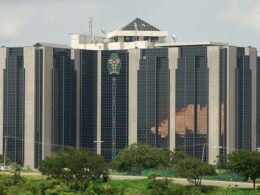The United States of America has found itself on a troubling trajectory, leading to a consistent downgrade of its credit rating. The root cause of this ongoing predicament lies in our nation’s approach to spending and taxation—a delicate balancing act between Democratic spending habits and Republican tax policies. Compounding this issue is the alarming fact that the wealthiest individuals in the country are effectively evading their tax obligations.
This political landscape has become so polarized that one can predict, with certainty, that conservatives will attribute any downgrade from rating agency Fitch to liberals, while liberals will point fingers at conservatives. Unfortunately, this reflexive tribalism hampers any meaningful discourse on the matter, as social media platforms like Twitter and Facebook tend to amplify these divisive narratives.
To truly understand who bears responsibility for this predicament, we must rise above partisan lines and adopt a neutral stance rooted in factual analysis. Although such an effort may not garner much attention on social media, there remain individuals genuinely interested in in-depth examination. I have delved into deficits over recent decades—comparing those under Republican and Democratic presidents in the spirit of bipartisanship and truth-seeking.
To simplify this complex issue, it is worth noting that Congress wields significant power in shaping deficits, while the president’s influence is not absolute. Nevertheless, analyzing presidential regimes serves as a valuable starting point. Interestingly, both credit rating downgrades in the United States thus far occurred under Democratic presidents (President Barack Obama in 2011). Delving deeper into the data, I discovered that deficits under Republican and Democratic presidents have been relatively comparable.
Using inflation-adjusted dollars from the White House, the average deficit under Republican presidents is roughly 30% higher than that under Democratic presidents during the Reagan administration onwards. However, two significant caveats must be considered. Firstly, these figures exclude President Biden’s next two budgets, which his own Office of Management and Budget predicts will result in substantial deficits. Secondly, a substantial portion of the “Republican” deficit stemmed from the unprecedented deficits incurred during the Covid-19 pandemic—an outcome of bipartisan decisions. Once these factors are taken into account, deficits under Democratic presidents surpass those under Republicans by approximately 25%.
In conclusion, America’s credit rating downgrades demand a comprehensive reevaluation of our fiscal approaches. Blaming solely one political party is futile; it is our collective responsibility to address the underlying issues. By transcending partisan divides and engaging in meaningful dialogue, we can forge a path towards fiscal stability and the preservation of America’s financial standing on the global stage.
The Blame Game: Rising US Debts and Downgrades
It’s become all too common for hyper-partisans to cherry-pick paragraphs and share them on social media to prove their team’s superiority. But let’s be reasonable here. Fact-based readers can see that both political parties bear responsibility for the increasing US debts.
What’s truly undeniable is that if our debts keep skyrocketing, there will be more downgrades in the future. And let’s face it, these downgrades may not be as nominal as the latest one – they could actually be serious.
It’s astonishing to think that just a generation ago, the federal government actually managed to run a surplus. Thanks to budget agreements forged by President Bill Clinton and a Republican Congress, alongside a thriving economy and a stock market bubble, we achieved a budget surplus of over 2% of our gross domestic product. Back then, serious policymakers and wonks in Washington even contemplated what would happen if the government were to pay off all its debts – namely, the impact on the bond market.
But let’s not dwell on what could have been because, let’s be honest, we all know how that turned out.
In the years since, federal spending has skyrocketed by more than 100% in real, inflation-adjusted dollars, while taxes have only risen by about 40%. It doesn’t take a genius to see that with such math, deficits and national debts were bound to shoot through the roof.
Does any of this sound familiar?
The French Revolution of 1789 was triggered by the national government running out of money. At the time, France boasted the strongest government in the world. Interestingly, the richest individuals in the country were effectively exempt from taxes, with the burden falling squarely on the middle classes and peasants.
Do you see any parallels today?
In America, the wealthiest citizens derive their fortunes from vast pools of capital rather than salaried income. Consequently, they are hardly taxed at all, if ever. According to government data, the combined wealth of all US households clocks in at a staggering $140 trillion. Shockingly, 31% of that wealth, approximately $43 trillion, is owned by just 1% of households. And an even smaller fraction – a mere 0.1%, or 130,000 households – possesses around 13% of this total wealth, equating to roughly $18 trillion. Let me be clear, there’s nothing inherently wrong with the rich being rich. As the man famously said in The Godfather, “we are not communists.” However, if we fail to directly tax their capital, we can only expect more downgrades in our financial standing.
Let’s take a moment to reflect on these words and the repercussions they may hold.






